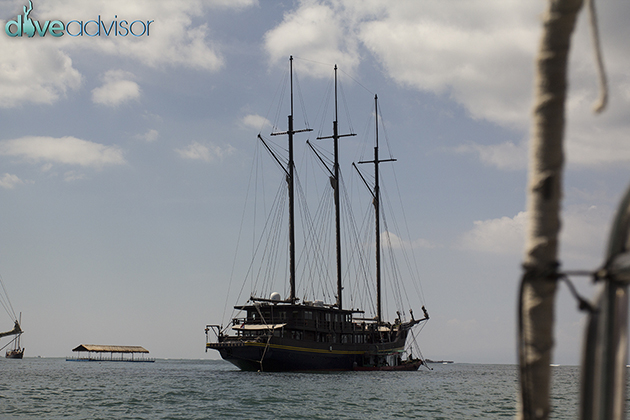I don’t mean to be stating the obvious, but the Maldives is easily the top 3 dive destinations in the world, and I think that any divers must aim to dive in the Maldives at some point in his or her life.
Below will be a brief insight into how to go about getting the most bang for buck when planning you Maldives Liveaboard Diving Holiday.
Why Liveaboard?
There are a couple of weighty reasons why you would pick the liveaboarding option versus a static hotel.
- Much better & more varied diving. You will be able to dive a much wider area of the Maldives.
- You are most likely going to spend less money. Hotels in the Maldives are generally very expensive and you will end up paying a lot more than even a high quality liveaboard.
Flights & Logistics
Pretty much the only option for an international flight into Maldives is into Male. There are plenty of airlines that fly into Male like Emirates Airlines, British Airways, Aeroflot etc.
Once in Maldives there are basically 3 possible routes.
Central Maldives, aka “Best of Maldives”
This is probably the most common – you will get picked up at the Male airport and taken by boat to the liveaboard. You will then do X number of days of diving, and end up back at Male and get taken by boat back to the airport.
Southern Maldives
In this case, either you will fly into Male, and then take an internal flight to
a Southern domestic airport, from which you will get picked up by boat to the liveaboard. The liveaboard will then most likely move to Male and you will get dropped off by boat at Male airport. Another scenario is the reverse, so you will fly into Male, and then the liveaboard will go South, and the end of the trip you take a domestic flight to Male.
Northern Maldives
The trips to the North work on the same principle as the Southern Trips.

Picking a Boat
The most important thing is to pick a boat that is suitable for you, has trips on the dates that you are looking for and has availability for those days.
This can be rather tricky. One useful resource we have aggregated is a directory of liveaboards with direct contact details of the operations – which will hopefully make it easier to get their dates.
From experience, I don’t like booking through 3rd parties. It increases the chances of miscommunication and I prefer to go directly to the source. It can be a little tricky figuring out which sites act as agents and which are the sites that belong to the source owner.
The best way is to look for the domain name. Something generic like ‘Maldives liveaboard Diving’ is probably not going to be the direct operator.
Once you have picked a couple of boats, you can contact them to check for availability, make the payment, usually by bank transfer and then (ONLY) buy your tickets.
Useful Goodies
If you are going on a liveaboard for the first time, there are a couple of items that I find really helpful to bring a lot.
- Seasickness pills (you never know) plus a couple of other basic medicines for headaches, stomach aches, flu and some tiger balm. Some ear drops are usually a good idea too, since 3 dives a day for a week takes a toll on the unprepared ears. Me personally, I get heartburn when I dive for prolonged periods of times, and some tum’s are a must.
- Books & Movies are a must, since you will have a lot of time in between dives to just sit around. I find in between dives people are just recovering and taking it easy, so there is a lot of time to read or watch movies while liveaboarding.
- Favorite Food Items. The food on liveaboards can be a little monotonous and similar, and if you are unlucky might be really bad. I find it a good idea to bring some extra snacks that you might getting a craving for, even if its just some chocolates or nuts.
- Reef Hooks are definitely a useful thing to have, especially while liveaboarding in the Maldives. The currents often sometimes are very strong and its good to just hook in and take a break from fighting them.
Experience Levels
As some personal advice, I dont think its a good idea for really new divers to go on liveaboards. A lot of liveaboards request atleast 50 logged dives before being allowed to join a liveaboard trip, and I generally agree with this rule.
It is assumed that you are not a new diver when you sign up to dive 3-4 times a day for a week straight.
I would advise getting at least a PADI advanced open water course or the equivalent as well as a nitrox course. Diving so frequently on air gives you less bottom time and also I find makes you a lot more tired since your body absorbs more nitrogen that it has to off-gas.







